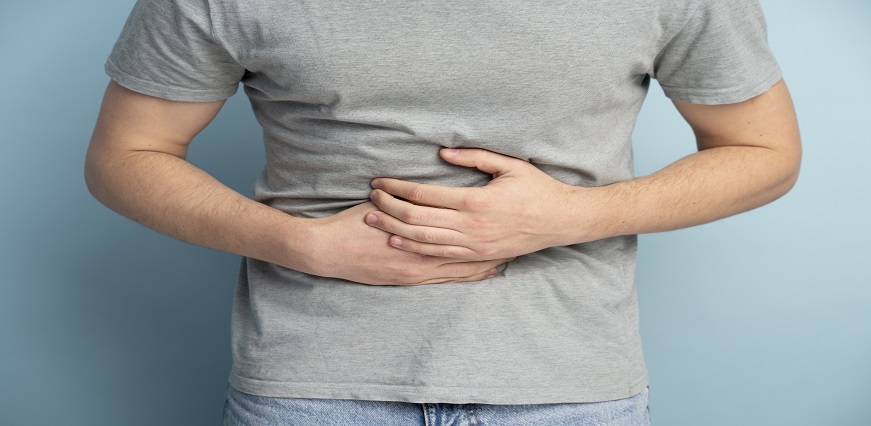

₹ 700
10% OFF for Senior Citizens | USE CODE SS10 *
@3x.png) Description
Description
The Sudan IV test, also known as the Sudan 4 lipid test, is a qualitative test that is performed to detect the presence of lipids or fats in the collected fluid sample. The Sudan 4 test is used for screening patients for conditions that may affect the digestion or absorption of fat in the body. The price of the Sudan IV test can be checked online at Max Lab with ease and an appointment can also be booked for the same online.
The Sudan 4 lipid test is performed to detect the presence of excess lipids and triglycerides in the collected sample of stool, urine, or other bodily fluids. Food is digested by the human body in various stages, where the proteins, carbohydrates, and fats are broken down in the stomach, absorbed (mainly in the small intestine), and transported throughout the body for using or storage. The need for a Sudan IV test arises when the food that is being ingested is not digested properly or if a health condition is preventing proper absorption. In such cases, nutrients are eliminated with stool, which a Sudan test can detect. The Sudan 4 lipid test uses a fat-soluble dye to detect the presence of fats in a sample. The dye stains lipids red. In positive Sudan IV test results, two distinct layers are visible, detecting the presence of substances that are insoluble in water. Generally, it is the top layer of positive Sudan test results for lipids and triglycerides that turns red, indicating a top layer of fat. It is important to remember that the Sudan test for lipids is a qualitative test. This means that while the Sudan test will be able to detect the presence of fats, it cannot evaluate the type or amount of fats. That is why, the Sudan test is generally prescribed with other relevant tests for a thorough evaluation. Affordably priced, the Sudan IV test can be booked online at Max Lab. The Sudan IV test procedure can be booked at a nearby Max Lab or at home.
....Read More
Recommended Tests

FAQs
@3x.png) Description
Description
The Sudan IV test, also known as the Sudan 4 lipid test, is a qualitative test that is performed to detect the presence of lipids or fats in the collected fluid sample. The Sudan 4 test is used for screening patients for conditions that may affect the digestion or absorption of fat in the body. The price of the Sudan IV test can be checked online at Max Lab with ease and an appointment can also be booked for the same online.
The Sudan 4 lipid test is performed to detect the presence of excess lipids and triglycerides in the collected sample of stool, urine, or other bodily fluids. Food is digested by the human body in various stages, where the proteins, carbohydrates, and fats are broken down in the stomach, absorbed (mainly in the small intestine), and transported throughout the body for using or storage. The need for a Sudan IV test arises when the food that is being ingested is not digested properly or if a health condition is preventing proper absorption. In such cases, nutrients are eliminated with stool, which a Sudan test can detect. The Sudan 4 lipid test uses a fat-soluble dye to detect the presence of fats in a sample. The dye stains lipids red. In positive Sudan IV test results, two distinct layers are visible, detecting the presence of substances that are insoluble in water. Generally, it is the top layer of positive Sudan test results for lipids and triglycerides that turns red, indicating a top layer of fat. It is important to remember that the Sudan test for lipids is a qualitative test. This means that while the Sudan test will be able to detect the presence of fats, it cannot evaluate the type or amount of fats. That is why, the Sudan test is generally prescribed with other relevant tests for a thorough evaluation. Affordably priced, the Sudan IV test can be booked online at Max Lab. The Sudan IV test procedure can be booked at a nearby Max Lab or at home.
....Read MoreThe Sudan IV test, also known as the Sudan 4 lipid test, is a qualitative test that is performed to detect the presence of lipids or fats in the collected fluid sample.
The Sudan 4 test is generally prescribed in cases where an individual is displaying symptoms that may indicate excessive malabsorption of fat. A doctor may also prescribe the Sudan test for lipids if they suspect steatorrhea. Steatorrhea is not a disease in itself, but it is a common symptom of several diseases that impact the digestive system. Steatorrhea can be diagnosed with the Sudan 4 lipid test. If an individual has exocrine pancreatic insufficiency (which can be caused by chronic pancreatitis, gallstone pancreatitis, Zollinger-Ellison syndrome, etc.), bile duct or liver diseases, malabsorption and maldigestion conditions, the Sudan IV test will be a part of their screening. The Sudan test for lipids may also be prescribed if there are significant changes in the individual’s stool, like their stool becoming greasy, loose, foamy, smelly, floating, lighter, etc.
The Sudan 4 lipid test results are generated within two days from sample collection. The report for the Sudan test can be collected from a nearby Max Lab or downloaded from our website. A positive Sudan IV test result only shows the presence of fecal fat and not its concentration. Additionally, the concentration of fecal fat that may be considered normal for an individual is based on several factors, like underlying health conditions, medication, daily fat intake, etc. That is why it is important to consult a doctor with the Sudan 4 test results. The doctor will be able to perform a proper diagnosis and suggest a treatment plan, management strategies, or further testing, if required.

Intestinal infections are more common than you might think. They can cause a ...

What is Appendicitis? Appendicitis is a common m...

Gastrointestinal issues are conditions or disorders that aff...